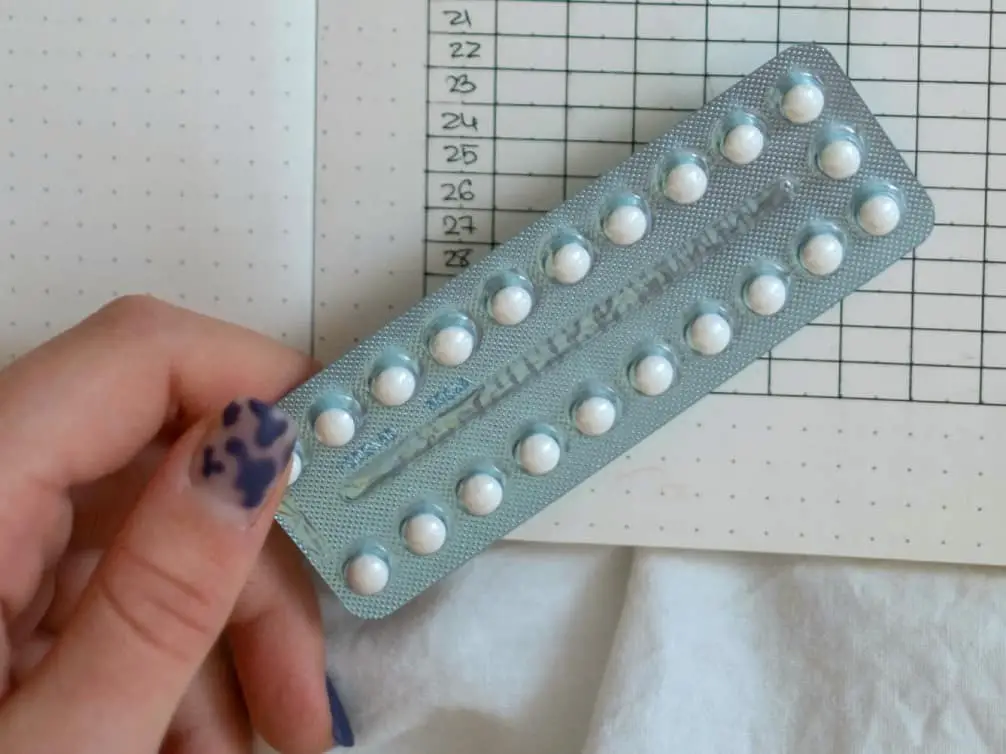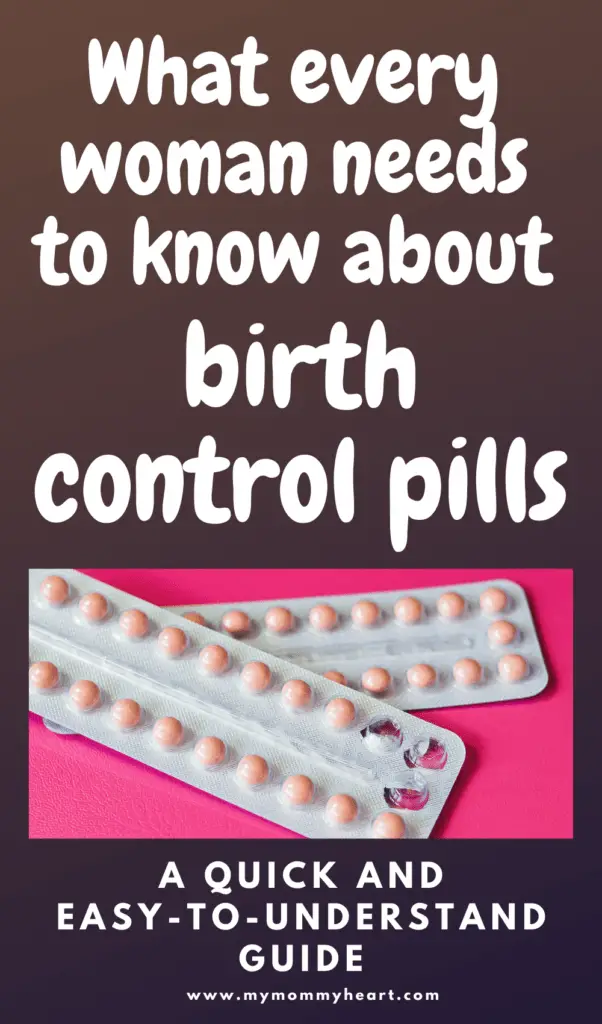
How do birth control pills work?
Birth control pills are an effective form of contraception and prevent unintended pregnancies. There are different types of birth control pills. They prevent the implantation of a fertilized egg in the uterine lining. Additionally, some of them also inhibit ovulation. Depending on the type, they contain only a single hormone or a combination of several ones.
There are two main kinds of hormonal birth control pills. The combination pill and the minipill.
How does the combination pill work?
Combination birth control pills for contraception contain the two female sex hormones, estrogen (follicle hormone) and progestin (luteal hormone). The main effects of estrogen are the inhibitions of the formation of messenger substances in the brain that is normally required for ovulation. Therefore, estrogen pills are also known as ovulation inhibitors.
Without ovulation, no egg can be fertilized, and pregnancy cannot occur. Additionally, the hormone progestin changes the mucus in the cervix. That way, the male sperm cells can no longer ascend to the uterus.
The combination birth control also prevents the lining of the uterus from developing sufficiently. Therefore, no fertilized egg cell can implant in the uterine lining.
How does the minipill / progestin-only pill work?
The minipill as the next type of birth control only contains the hormone progestin. It changes the mucus in the cervix and prevents the uterine lining from building up sufficiently. Minipills do not prevent ovulation.
(However, there is one exception. A certain minipill containing the hormone desogestrel additionally does inhibit ovulation.)

How to take birth control pills
Depending on the type of oral contraceptive and its ingredients, there are differences in how to take each one. Always check the instructions in the manual that comes with the pill pack.
How to take combination pills
When you want to start taking combination birth control pills, you should start on the first day of your monthly cycle. That way, you are fully protected from day 1.
If you decide to start taking the pill somewhere in the middle of your monthly cycle, you will need to wait for seven days before having sexual intercourse. Or you can use another method of contraception (condoms) during that time to prevent a possible pregnancy.
One phase birth control pill
Most one-phase (monophasic) pills come in 21-day pill packs. Each pill contains the same amount of hormones (estrogen and progestin). After the 3 weeks of taking one pill each day at the same time, you take a seven-day break. Then you start a new pack with 21 pills again and continue this cycle.
There are also single-phase pill packs with 22 or 24 pills in a pack. Accordingly, with those, there will only be a six- or four-day break.
Or a third option is the single-phase pill which comes with 28 pills in a pack. The last seven pills contain no active ingredients, they are so-called placebo pills. It is easier for you to take it consistently. You keep taking one pill a day without breaks. You don’t have to worry about forgetting to start the next pack on the right day.
Two-phase and three-phase birth control pill
The two-phase (biphasic) and the three-phase (triphasic) pills contain different estrogen and progestin levels. With this birth control method, the hormone concentrations are adapted to the female cycle. That means not every single pill in a pack contains the same ingredients.
This form of birth control pill comes in 28-day pill packs, and you take one each day at the same time. After one pack finishes, you start the next one. There is no break in between.
Minipill
When you want to start taking mini-pills, you can start anywhere in your menstrual cycle and have to wait for 7 days before having sex. Or you use a backup method like condoms for that time. Only after this period, the hormone levels in your body are high enough to prevent pregnancy effectively.
The minipill comes in a package of 28 pills. You take one pill per day at the same time each day. After one package finishes, you start the next one without a break in between.
Side effects and long-term effects of hormonal contraceptives
In general, serious side effects of the pill are rare.
In the first few months, you might experience irregular menstrual bleeding. Some women experience abdominal pain, headaches, migraines, mood swings and depression, weight gain, water retention, nausea, sore breasts or general breast tenderness, skin irritations among other things.
If necessary, talk to your provider, and you might receive a different dosage adapted to your symptoms. There are so-called low-dose-pills with lower levels of estrogen. According to different studies presented in an article on healthline.com , the long-term risk of breast cancer is only slightly increased. Besides, a reduction in the risk of malignant tumors of the uterus, ovaries, and intestines was observed.
Smokers, especially if they are over 35 years old and if other risk factors are present, are at an increased risk of blood clots (venous thrombosis), heart attacks, strokes, and other vascular complications.
Who shouldn’t use a hormonal type of birth control?
If you suffer from any of the following illnesses, you should not use the pill as a birth control method before consulting your doctor:
- Deep vein thrombosis
- Blood clots disorders
- Phlebitis
- Pronounced varicose veins
- Cardiovascular calcifications
- Heart defects, valvular heart disease
- Breast cancer and other hormone-dependent tumors
- Liver damage
- Inflammation of the pancreas
- Heavy overweight
- High blood pressure
- Diabetes in combination with its diseases such as kidney, eye, or nerve diseases
- Migraines
- Active viral hepatitis
- Liver cancer, cirrhosis of the liver
- Heavy smokers, 35 years or older
Every woman should talk to her health care provider about whether it is possible to use hormonal birth control in her individual case. Together they will look at her medical history and then make a decision. Sometimes it’s ok to take hormonal contraceptives, even if there are risk factors present.
Birth control pills effectiveness
How likely is it to get pregnant on oral contraceptive pills? What is the risk of pregnancy with this method of birth control?
The so-called Pearl Index, which is a measure of the safety and reliability of contraceptives, is around 0.1 to 0.9. The lower the Pearl Index, the safer the method. That means birth control pills are generally a pretty safe and effective method.
Most times, when somebody gets pregnant on birth control, it was due to a mistake in the intake. Either the pill was completely forgotten or taken at a later than usual.
All in all, the birth control pill provides very reliable protection against unintended pregnancy.
Ingestion errors or special circumstances such as vomiting or diarrhea can make the pill less effective. Additionally, the use of medication, for example, antibiotics, can affect it as well.
NO protection from STDs
No birth control pill can protect you from STDs (sexually transmitted diseases). Couples having sex must always use a barrier method along with the pill to be protected from STDs.
Where can you get birth control pills?
You need a prescription to get birth control pills. You can get it from your gynecologist, your doctor or nurse at a doctor’s office, or a health clinic. In a few states, you can even get a prescription online or directly from a pharmacist.
Birth control pills cost
In the US, birth control pills cost up to $50 a month. However, most health insurance plans cover it fully, or you might qualify for some government programs. Talk to your provider and find out.

Now you know everything about how birth control works
The pill is a popular, effective birth control method. Generally, it is accepted as a safe method to prevent unintended pregnancies.
Obviously, there are also other types of contraception (such as non-hormonal birth control) and every woman has to find and chose her preferred birth control method individually. Make an appointment and talk to your health care provider about any concerns. And check out other sources online for other methods of contraception.
I wish you all the best and good health on your journey!
Wondering if you could be pregnant? Read more about the early signs of pregnancy here.
Or find out how exactly a pregnancy test works and tells you if you are pregnant before your missed period.


I loooove the information here!! Thank you for sharing!
This is a great comprehensive guide! I’m looking for BC for my teen, so this a huge help.
This is an informative article. I’m so scared of pregnancy because of my history of ectopic pregnancy and loss of a fallopian tube. I’m not on BCP now, but I will consider.
Thank you for the information.